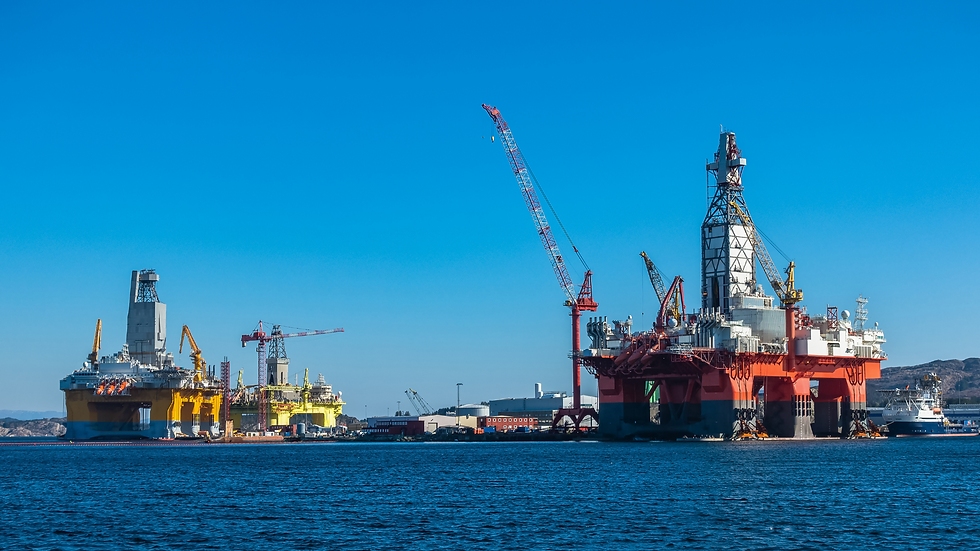The Next Frontier: Innovations and Challenges in Oil Rig Decommissioning and Recycling
- Emre Altuncu
- Sep 14, 2022
- 2 min read
A Complex Endeavor
Decommissioning and recycling oil rigs represent a complex and challenging frontier in the maritime industry. As oil rigs reach the end of their operational life, finding responsible and efficient ways to decommission and recycle them becomes crucial.
Innovative Approaches in Decommissioning
Innovations in decommissioning involve not only the physical dismantling of the rigs but also the repurposing of materials and the minimization of environmental impact. New technologies and methods are being developed to handle these massive structures safely and sustainably.

Challenges in Recycling Oil Rigs
Recycling oil rigs presents unique challenges:
Environmental Concerns: The potential environmental impact of dismantling oil rigs, especially those that have been operating for decades, is a significant concern.
Technical Complexity: The sheer size and complexity of oil rigs make their dismantling and recycling a highly specialized and technically demanding task.
Case Studies: Success Stories and Lessons Learned
Various successful decommissioning projects offer insights and lessons. For instance, some North Sea decommissioning projects have set standards in environmental safety and efficiency.
Global Standards and Regulations
The oil rig recycling industry is guided by international regulations and standards, which ensure that decommissioning is done responsibly. Adherence to these standards is crucial for environmental protection and worker safety.
Future Prospects: Sustainability and Innovation
The future of oil rig recycling lies in the balance of sustainability and innovation. As the industry evolves, the focus is on developing more efficient, environmentally friendly, and safer methods of decommissioning and recycling.
Conclusion: Navigating a Responsible Path
The decommissioning and recycling of oil rigs are essential for environmental sustainability and economic viability. The industry must continue to innovate and adhere to strict regulations to navigate this responsible path forward.
References:
"Decommissioning of Offshore Oil and Gas Facilities: A Best Practice Guide," International Association of Oil & Gas Producers, 2019.
"Environmental Impact of Decommissioning Offshore Oil Rigs," Marine Pollution Bulletin, 2018.
"Technical Challenges in the Recycling of Offshore Structures," Journal of Petroleum Technology, 2019.
"North Sea Decommissioning: Case Studies and Lessons Learned," Offshore Technology Conference Paper, 2020.
"Sustainability in the Decommissioning of Offshore Oil Platforms," Environmental Science & Technology, 2021.




Comments